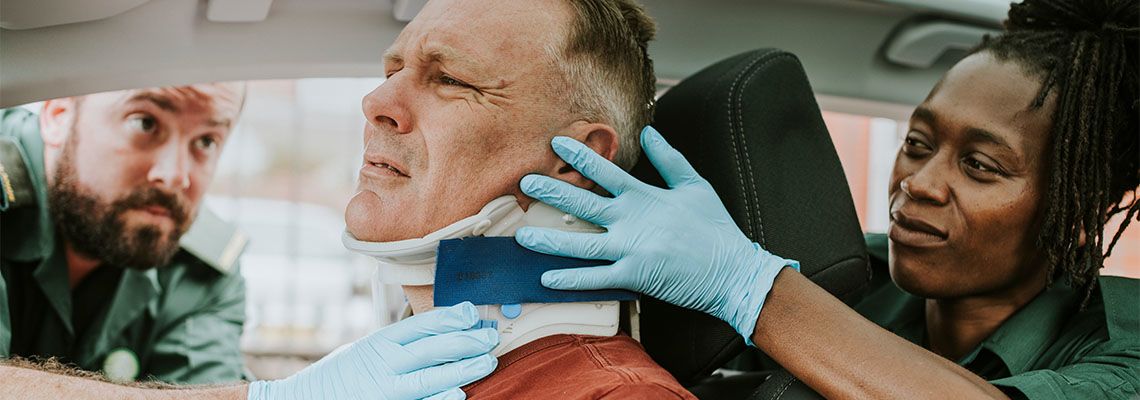Accidents happen when we least expect them. Whether it is a car crash, a slip and fall, or any other unexpected event, accidents can lead to injuries that aren't always immediately apparent.

Do’s and Don’ts After an Injury
Imagine, for a moment, that you're just an average person going about your typical day. Suddenly, out of nowhere, an accident happens — a slip, a car crash, a fall — and in an instant, your life is turned upside down. You're suddenly catapulted into a world of pain, confusion, and worry, and you're left dealing with injuries you never anticipated. During such times, understanding the legalities of a personal injury claim might seem like deciphering a foreign language — a daunting, confusing task that you're too overwhelmed to undertake. So, what next?
Do's and Don'ts After an Injury
Having worked extensively as a skilled personal injury attorney, I've seen this scenario play out time and time again. I understand how overwhelming it can be to navigate through the complexities of a personal injury claim while dealing with the physical and emotional trauma of an accident. At my firm, Hess Law LLC, I work to help you understand your next steps, and this guide is designed to provide you with valuable insight into the do's and don'ts after suffering an injury.
Don't Leave the Accident Scene Prematurely
In the aftermath of an accident, it's crucial that you don't leave the scene until you've exchanged information with all parties involved. This is not just about gathering the details you need for your case, but also about protecting yourself from potential hit-and-run claims. Stick around, ensure everyone is safe, and collect the necessary information.
Record Your Memories of the Incident
As soon as you're able, write down everything you can remember about the incident. Details are often forgotten over time, so it's important to record them while they're fresh in your mind.
Do Speak to Your Attorney Before the Insurance Adjuster
You might feel inclined to discuss your case with the insurance adjuster first. However, as your attorney, I should be the first person you talk to. Let's discuss your case thoroughly before engaging with the insurance company. One of the most important steps after an injury is to contact a personal injury attorney. As your attorney, I'm here to guide you through your case and advocate for your rights. For further answers and representation, get in touch with me today. I am here for you.
Do Document Everything
Keeping records is key when it comes to personal injury claims. Document every detail — from conversations and correspondence to bills and medical reports. This evidence will be invaluable in supporting your claim.
Finally, record how this incident is affecting your work and daily life. If your ability to earn a paycheck has been impacted or if your day-to-day activities are hindered, these details can significantly influence your claim.
Do Keep Track of Your Medical Expenses and Visits
Maintain records of every single medical bill and keep track of all doctor visits in your calendar. These records will be crucial when it comes to calculating your damages and compensation.
Don't Rush into Accepting the First Offer
Insurance companies are often quick to make a settlement offer. While it might seem tempting, don't accept the first deal you're offered. It may not account for all your future costs, like unforeseen medical expenses and time missed from work. We'll work together to evaluate the offer and make sure it's fair and just.
Don't Forget Your Health
Regardless of your insurance situation, don't neglect your injuries. Even if you're uninsured or underinsured, seek immediate medical attention and follow up with any recommended treatments. Your well-being is paramount, and we'll work out the rest together.
Don't Share the Details of Your Case
It may be tempting to share details of your case with friends or on social media, but it's best to avoid. Anything you say or post can potentially be used against you in your case. It's best to keep the specifics to yourself and let me handle the legalities.
Filing a Personal Injury Claim in Kansas
Kansas is identified as a 'no-fault' state for car accidents, meaning that your own car insurance coverage (specifically your personal injury protection or PIP) pays for certain out-of-pocket losses, regardless of who was at fault for the car accident. This system doesn't apply to accidents involving motorcycles, heavy trucks, or pedestrians, which will be directed towards a fault-based system. However, bear in mind that the 'no-fault' rule doesn't restrict you from filing a claim against the at-fault driver if your medical expenses exceed $2,000, or if the accident resulted in severe injuries.
As for the statute of limitations in Kansas, you generally have two years from the date of the accident to file a personal injury lawsuit. This applies to cases including but not limited to, car accidents, slip and fall incidents, and medical malpractice suits. If you fail to file your claim within this time frame, the Kansas court system may refuse to hear your case, thus preventing you from receiving the compensation you deserve.
Dedicated to My Kansas Community
You don’t have to go through it alone. I, Chuck Hess, am here to help you every step of the way. With over 35 years of experience advocating for injury victims across Kansas, I am confident in my ability to guide you through these challenging times.
I invite you to reach out to Hess Law LLC for a free consultation. Let's work together to secure the compensation you deserve. Remember, taking the right steps after an injury is crucial in protecting your rights and seeking justice. Don't hesitate to contact me at Hess Law LLC to discuss your case and begin your journey towards justice.
RECENT POSTS
Experiencing a car accident is already traumatic enough, often resulting in serious physical and mental damage. Adding the challenges of dealing with drivers who are uninsured or underinsured is all the more stressful.
Any accident involving a motor vehicle can be stressful and overwhelming, but a hit and run is particularly distressing. A hit and run is when a driver involved in an accident leaves the scene without stopping to provide their information or offer assistance to the victim. It can involve various types of accidents such as car crashes, pedestrian incidents, or even property damage.


